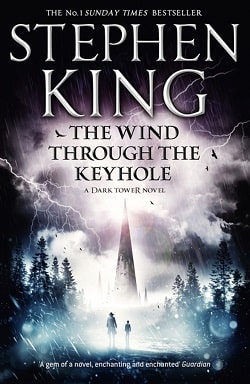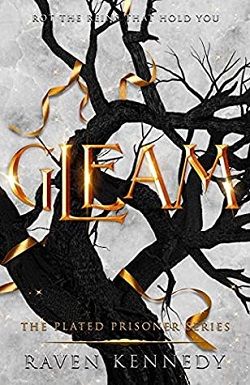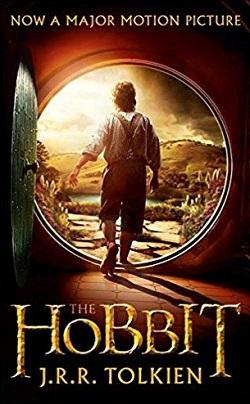She crossed her arms and glared up at him, her small face red and blotchy, and her hair sticking to her head like a wet dog’s.
“Do you understand?” he repeated.
“I understand,” she said, her tone implying she understood far more than what he’d conveyed.
“Good.” Rory turned on his heel and marched to the door. It occurred to him then that he should probably bid her goodnight. His father had never bidden him goodnight, but then, his father had probably never set foot in the nursery. He turned and looked back at her sitting and scowling at the fire. “Goodnight, Frances,” he said.
She sniffed and looked away, her dismissal reminding him very much of her mother’s.
*
Rory didn’t goback to the dining room. He wasn’t hungry anyway. Instead, he went to his own chamber, pulled out a piece of parchment, and tried to begin a letter to King. He made it as far as the salutation and then scratched his head, not knowing what he should say. He didn’t know what he should do. He could give King money. Surely King would appreciate that. But how did a few hundred or even a few thousand pounds solve the problem of King’s lowered circumstances? How did that solve the problem King wanted solved—that of the witch?
Rory dropped his quill and put his head in his hands. He did not want to think about the witch. He’d tried very hard to putthat night out of his mind. Everyone always thought he was the brave one, the one who wasn’t afraid of anything. But Rory had been afraid that night. He’d been absolutely terrified. Of course, like the other boys, he’dsaidhe didn’t believe in witches or curses.
The truth was that he did.
In fact, he knew witches were real. As a young child, he and his brothers had a nanny who was very kind. Miss Fiona was gentle with the boys, even though they were every bit as wild as Frances when their parents were not nearby. But she spoke softly to the children and hugged them when they were injured. More than once, Rory had seen her cast some sort of spell over the nursery. When his brothers had asked her about it, she said it was intended to give them rest and good dreams.
Unfortunately, a few weeks later his mother had seen the nanny do the same and promptly dismissed the woman. Rory could still remember his mother railing about witches and the dark arts. Miss Fiona had protested that she was a white witch and would never harm the children. Rory could have told her it didn’t matter. His mother had very particular ideas, and once she made up her mind, nothing could change it. The duchess told the nanny she was fortunate the duke didn’t involve the church. She would say nothing to the bishop if Miss Fiona left quietly.
Rory never saw her again.
Before the next nanny arrived—a stern woman who never smiled and had the habit of grabbing Rory by the ear when he misbehaved—his mother sat the children down and told them about the evils of witchcraft and how, when her grandmother was alive, witches had been burned at the stake.
Rory, who hadn’t yet learned to keep his mouth shut, said, “But surely those were bad witches, Mama. Miss Fiona was a good witch.”
“There’s no such thing!” his mother retorted, her brown eyes blazing. “Do you want to go to hell, Emory? Do you want to burn in eternal fire?”
Rory had shaken his head. No, he did not want to burn in eternal fire. He’d burned his hand once on a hot grate, and it had hurt for weeks.
“Then keep clear of witches!”
If only Rory had heeded his mother’s advice when he and his friends hatched the plan to steal the whiskey from the witch who lived near St. Andrew’s Preparatory for Boys. He hadn’t wanted to be part of the prank, but he also hadn’t been able to say no. He’d been angry, so angry, at that age. He’d been expelled from Harrow and Tonbridge and Eton and sent to Scotland to rot away. At least, that was how he’d seen it at almost fourteen. His parents had told the headmaster he had free rein, as long as he kept Lord Emory under control.Free reinmeant Rory was beaten every other day for the smallest infractions. Even when he tried to be good—which, admittedly, was not often—he was beaten for some unintentional slight. So what did he care if he was caught sneaking out to steal from a witch? He would be with Henry and King, and those were the only people in the world he could count on.
He needed them to like him because he had no one else. And that was why he hadn’t said anything about how witches were real when they decided to go. He’d just acted like he didn’t believe in witches too, like nothing scared him. He’d relived that night so many times over the years. If he had just pretended to think the whole idea was idiotic, maybe the others would have gone along.
Maybe they wouldn’t have been cursed.
And now here he was, all these years later, at thirty years of age, recalling the curse as though the witch had spoken it yesterday. He could still hear the witch’s voice, ringing outbetween the flashes of lightning and rumble of thunder that night.
Take tooth of giant; seize nail ofdragon.
Unite with holy water in thisflagon.
Hear me now, oh great lords ofnight.
Give me my revenge; ease myplight.
These three lads have taken what’smine.
At the age of thirty, repay them inkind.
Pilfer, purloin, and pinch what it is they lovebest.
And then and only then will I find my eternalrest.
He’d thought of the curse on his thirtieth birthday, when he was brought word that there had been a horrible accident. He’d rushed to the village where the bodies of his wife and children had been taken, the wordsrepay them in kindringing in his ears as though the words had been spoken that very moment.















